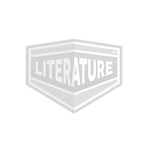The Bell Page #2
"The Bell" is a charming fairy tale by Hans Christian Andersen about a distant, splendid bell that rang out in the forests. People from all walks of life - the king, priests, peasants, and children - were drawn to its sound. However, they failed to find it because the bell was reflected in the hearts of all humans. The bell symbolizes truth and the story is a compelling exploration of the universal human quest for divine truth and spiritual fulfillment.
of his jacket, and said that he was afraid he could not walk so fast; besides, he was of opinion that the bell ought to be sought at the right, for there was all that was grand and magnificent. "Then we shall not meet," said the king's son, nodding to the poor boy, who went into the deepest part of the wood, where the thorns tore his shabby clothes and scratched his hands, face, and feet until they bled. The king's son also received several good scratches, but the sun was shining on his way, and it is he whom we will now follow, for he was a quick fellow. "I will and must find the bell," he said, "if I have to go to the end of the world." Ugly monkeys sat high in the branches and clenched their teeth. "Shall we beat him?" they said. "Shall we thrash him? He is a king's son!" But he walked on undaunted, deeper and deeper into the wood, where the most wonderful flowers were growing; there were standing white star lilies with blood-red stamens, sky-blue tulips shining when the wind moved them; apple-trees covered with apples like large glittering soap bubbles: only think how resplendent these trees were in the sunshine! All around were beautiful green meadows, where hart and hind played in the grass. There grew magnificent oaks and beech-trees; and if the bark was split of any of them, long blades of grass grew out of the clefts; there were also large smooth lakes in the wood, on which the swans were swimming about and flapping their wings. The king's son often stood still and listened; sometimes he thought that the sound of the bell rose up to him out of one of these deep lakes, but soon he found that this was a mistake, and that the bell was ringing still farther in the wood. Then the sun set, the clouds were as red as fire; it became quiet in the wood; he sank down on his knees, sang an evening hymn and said: "I shall never find what I am looking for! Now the sun is setting, and the night, the dark night, is approaching. Yet I may perhaps see the round sun once more before he disappears beneath the horizon. I will climb up these rocks, they are as high as the highest trees!" And then, taking hold of the creepers and roots, he climbed up on the wet stones, where water-snakes were wriggling and the toads, as it were, barked at him: he reached the top before the sun, seen from such a height, had quite set. "Oh, what a splendour!" The sea, the great majestic sea, which was rolling its long waves against the shore, stretched out before him, and the sun was standing like a large bright altar and there where sea and heaven met--all melted together in the most glowing colours; the wood was singing, and his heart too. The whole of nature was one large holy church, in which the trees and hovering clouds formed the pillars, the flowers and grass the woven velvet carpet, and heaven itself was the great cupola; up there the flame colour vanished as soon as the sun disappeared, but millions of stars were lighted; diamond lamps were shining, and the king's son stretched his arms out towards heaven, towards the sea, and towards the wood. Then suddenly the poor boy with the short-sleeved jacket and the wooden shoes appeared; he had arrived just as quickly on the road he had chosen. And they ran towards each other and took one another's hand, in the great cathedral of nature and poesy, and above them sounded the invisible holy bell; happy spirits surrounded them, singing hallelujahs and rejoicing.
Translation
Translate and read this book in other languages:
Select another language:
- - Select -
- 简体中文 (Chinese - Simplified)
- 繁體中文 (Chinese - Traditional)
- Español (Spanish)
- Esperanto (Esperanto)
- 日本語 (Japanese)
- Português (Portuguese)
- Deutsch (German)
- العربية (Arabic)
- Français (French)
- Русский (Russian)
- ಕನ್ನಡ (Kannada)
- 한국어 (Korean)
- עברית (Hebrew)
- Gaeilge (Irish)
- Українська (Ukrainian)
- اردو (Urdu)
- Magyar (Hungarian)
- मानक हिन्दी (Hindi)
- Indonesia (Indonesian)
- Italiano (Italian)
- தமிழ் (Tamil)
- Türkçe (Turkish)
- తెలుగు (Telugu)
- ภาษาไทย (Thai)
- Tiếng Việt (Vietnamese)
- Čeština (Czech)
- Polski (Polish)
- Bahasa Indonesia (Indonesian)
- Românește (Romanian)
- Nederlands (Dutch)
- Ελληνικά (Greek)
- Latinum (Latin)
- Svenska (Swedish)
- Dansk (Danish)
- Suomi (Finnish)
- فارسی (Persian)
- ייִדיש (Yiddish)
- հայերեն (Armenian)
- Norsk (Norwegian)
- English (English)
Citation
Use the citation below to add this book to your bibliography:
Style:MLAChicagoAPA
"The Bell Books." Literature.com. STANDS4 LLC, 2025. Web. 22 Feb. 2025. <https://www.literature.com/book/the_bell_2143>.








Discuss this The Bell book with the community:
Report Comment
We're doing our best to make sure our content is useful, accurate and safe.
If by any chance you spot an inappropriate comment while navigating through our website please use this form to let us know, and we'll take care of it shortly.
Attachment
You need to be logged in to favorite.
Log In